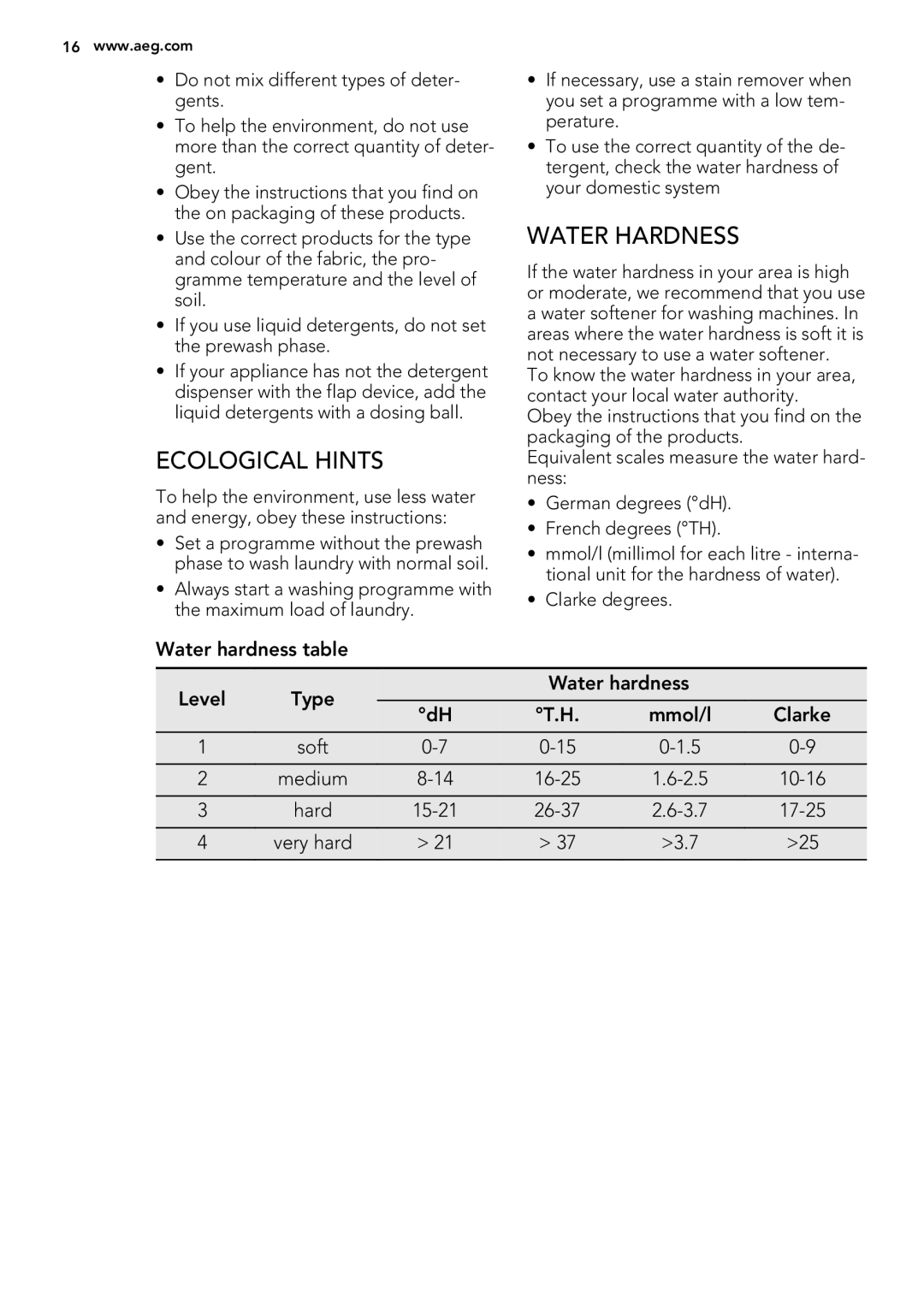16www.aeg.com
•Do not mix different types of deter- gents.
•To help the environment, do not use more than the correct quantity of deter- gent.
•Obey the instructions that you find on the on packaging of these products.
•Use the correct products for the type and colour of the fabric, the pro- gramme temperature and the level of soil.
•If you use liquid detergents, do not set the prewash phase.
•If your appliance has not the detergent dispenser with the flap device, add the liquid detergents with a dosing ball.
ECOLOGICAL HINTS
To help the environment, use less water and energy, obey these instructions:
•Set a programme without the prewash phase to wash laundry with normal soil.
•Always start a washing programme with the maximum load of laundry.
•If necessary, use a stain remover when you set a programme with a low tem- perature.
•To use the correct quantity of the de- tergent, check the water hardness of your domestic system
WATER HARDNESS
If the water hardness in your area is high or moderate, we recommend that you use a water softener for washing machines. In areas where the water hardness is soft it is not necessary to use a water softener.
To know the water hardness in your area, contact your local water authority.
Obey the instructions that you find on the packaging of the products.
Equivalent scales measure the water hard- ness:
•German degrees (°dH).
•French degrees (°TH).
•mmol/l (millimol for each litre - interna- tional unit for the hardness of water).
•Clarke degrees.
Water hardness table
Level | Type |
| Water hardness |
| ||
°dH | °T.H. | mmol/l | Clarke | |||
|
| |||||
1 | soft | |||||
2 | medium | |||||
3 | hard | |||||
4 | very hard | > 21 | > 37 | >3.7 | >25 | |
|
|
|
|
|
| |
